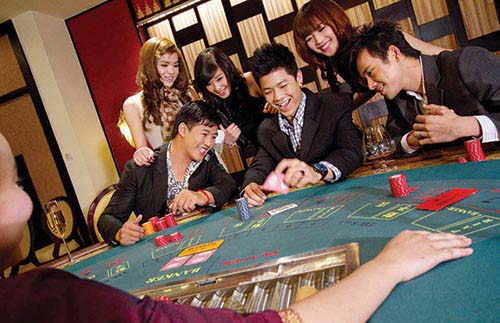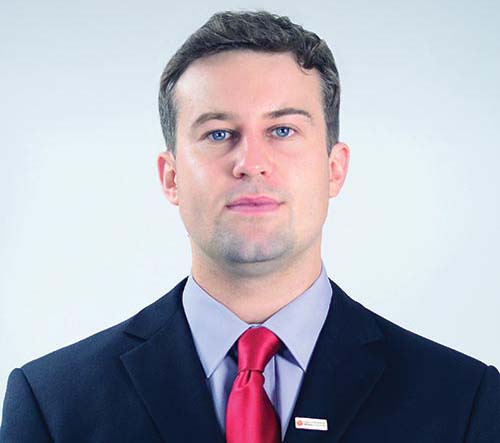Vietnam betting on more casinos

In the latest news relating to the casino industry, the Government Office a week ago reported that Prime Minister Nguyen Tan Dung had accepted a casino investment plan on the idyllic island of Phu Quoc.
The proposal was nothing new, coming a decade after the initial idea was raised, but it seems it took ten years for investors to hit upon the magical formula that made it acceptable to the government.
Huynh Vinh Lac, deputy director at the Office of the Kien Giang Provincial People’s Committee, said the government had decided to choose a domestic investor for the casino capable of sourcing around $4 billion in investment, but declined to name the lucky company.
Phu Quoc island, which is currently famous as an untouched paradise, 120 kilometres off the coast of Kien Giang province, is Vietnam’s largest island and subject to a government master plan that will see Phu Quoc transformed from a currently unspoilt island into a services, finance, and tourism hotspot.
Last year, Vietnam’s leading property developer Vingroup opened a 750-room Vinpearl Resort on the island, while studying prospects for a marina. The island also recently saw the opening of a new international airport.
Casinos mushroom
Vietnam has flirted with the concept that casinos would attract tourists, with the first casino appearing in Vietnam in 1994 in the beachside resort of Do Son, in the northern port city of Haiphong.
Vietnam has had seven casinos and more than 50 electronic gaming facilities licensed nationwide serving foreigners due to the ban on gambling for Vietnamese citizens. However, most of these facilities are small in scale.
The biggest gambling facility is the Grand Ho Tram Strip in the southern province of Ba Ria-Vung Tau, with 90 gaming tables and 614 electronic slot machines. Harbinger Capital Partners LLC is the majority owner of Asian Coast Development Ltd along with minority owners Pinnacle Entertainment and NewCity Capital.
When Asia Coast Development Limited Company (ACDL), the owner of the Grand Ho Tram Strip completes the ongoing second phase of this project, the casino will be expanded to 180 gaming tables and 2,000 electronic slot machines. This is a part of ACDL’s 500-hectare Ho Tram Strip project which will comprise five resorts, a casino and a golf course.
In an interview with VIR, Colin Pine, general director of Ho Tram Project Company, a subsidiary of ACDL, said large integrated resorts located outside of major urban centres within a clear and fair regulatory framework were the safest and most productive form of casino gaming.
In addition to Phu Quoc, the government plans for untouched Van Don Island in the northern province of Quang Ninh as an ideal location for another casino project.
The development of Ho Tram Strip has encouraged investors to consider these larger integrated resorts. However, they have their own opinions where such developments would actually work, rather than destinations designated by any government’s master plan.
Hong Kong-based Chow Tai Fook Enterprises Ltd - a company engaged in property development, hotel, casino, transportation and jewellery - and Sun City Company are planning to acquire stakes in VinaCapital’s $4 billion integrated casino and resort project in the central province of Quang Nam. The acquisition plan has been submitted to the government for approval, according to the Management Authority of Chu Lai Open Economic Zone where the project is situated.
Singaporean developer Banyan Tree Holdings wants to build a casino at its existing $800 million Laguna Lang Co integrated resort in the central province of Thua Thien-Hue, hoping this might encourage more tourists.
Vietnamese private developer Sun Group also asked the government for permission to open casinos at its two existing resorts in Danang, Ba Na Hills and Son Tra Intercontinental Resort.
The General Statistics Office reporteds that Vietnam welcomed nearly eight million foreign arrivals in 2014, a four per cent increase on 2013. Although the country has a rich and varied landscape and plentiful culture, unnamed tourism industry insiders blame the lack of entertainment services, allegedly including casinos, for the country’s flagging attraction.
The government has also reconsidered the long-standing ban on Vietnamese entry into casinos in the country as more Vietnamese go abroad to fritter away money in casinos.
The Ministry of Finance revealed a draft decree on casinos last August, proposing entry for those aged over 21. The proposal implies that Vietnam is ready to open casinos for everyone, instead of just foreign passport holders as is presently the case. Unsurprisingly, this policy has been welcomed by casino operators.
Three years ago, due to the ban on locals, Malaysian casino giant Genting Bhd ended its collaboration with VinaCapital at the Quang Nam-based casino project, which Chow Tai Fook Enterprises Ltd and Sun City are planning to become involved in.
But now, two nephews of the founder of Genting Bhd, Lim Keong Yew and Benjamin Lim Keong Hoe are very happy with their casino business in the northern province of Lao Cai with the newly-opened Aristo International Hotel and Casino, and expect an even brighter outlook as the government signals to open casinos up for locals.
Challenges ahead
Vietnam is not the only country in Asia opening up its casino business to attract foreign gamblers. The Philippines, Malaysia, Singapore, and Cambodia have already built casinos to attract foreign tourist arrivals.
Caesars Entertainment Corp, the largest operator of US casinos, is seeking a licence from the Filipino government to build a $1 billion resort in the country, betting on luring gamblers from across Asia.
Currently, Caesars Entertainment and Indonesian conglomerate Lippo Group also plan to build a $700 million casino resort on Yeongjong Island in South Korea. Apart from 16 existing foreigner-only casinos, more casinos are set to be built in South Korea.
This obviously offers Vietnam significant competition and the fact remains that the country’s major source of gamblers is from China. Visits from the neighbouring country plunged last year following the dispute in May.
Haiphong Joint Venture International Tourism Corp, the owner of Do Son Resort & Casino in Haiphong, last year reported huge losses after 20 years in operation because of the drop in Chinese tourist arrivals since 2005. Meanwhile, Royal International Corporation last week reported $7.1 million in losses last year, mainly because of the tension between Vietnam and China.
Even the gambling mecca of Macau, the world’s biggest gaming hub, saw declining earnings, underlining how difficult the gambling industry is to make profitable. According to Macau’s Gaming Inspection and Co-ordination Bureau, gambling revenues fell 2.6 per cent in 2014, with December seeing a record 30.4 per cent drop in revenues from a year ago.
This was the first fall since gambling was liberalised in Macau in 2001, and December saw the seventh consecutive monthly revenue decline for its casino, extending the downtrend. Analysts blamed the slump on the Chinese government’s campaign to rein in conspicuous spending and corruption.
| Phu Quoc earmarked to make a regional casino splash Phu Quoc is the largest island in Vietnam, located just an hour away from Ho Chi Minh City. In total, Phu Quoc comprises 593 kilometres and 29 islands, with the majority of land falling under the remit of the Phu Quoc National Park. According to local government statistics, during 2011-2013, the average GDP growth rate of Phu Quoc was 26.17 per cent. Of this, 66 per cent was derived from tourism and the service sector. Estimated GDP per capita of Phu Quoc by the end of 2013, reached $3,347, an 8.1 fold increase compared to 2004, proving that the tourism sector is going a long way to improving the lives of the local residents. The main island is still highly undeveloped and there is a lack of quality retail, commercial, and leisure space to accommodate the increasing number of tourists. Currently, most beachfront hotels of the island are spread along the Long Beach on the west side. With a total of 18 beachside areas, the other parts of the island have great potential for future development. In terms of infrastructure, the Phu Quoc International Airport, the An Thoi International Port and the submarine 110KV power cable are now finished. In addition, the 51.5km North-South road, the 99.5km encircling road along the island and the clean water system are some of the ongoing projects that are expected to finish in the near future. On the island, there are approximately 100 hotels providing 2,900 rooms in total, of which local hotel chains dominate the market, especially the low and mid-scale market segments. In total, 3-star and 4-star hotels represent around 30 per cent of the hotel supply on the island. There are only two 5-star hotels, one is the Salinda developed by Salinda Group which was launched in October 2014, and the other one is the Vinpearl Phu Quoc project, which will include a golf course and amusement park in the second phase. The Crowne Plaza Phu Quoc hotel developed by BIM Group and InterContinental Hotel Group, and the Novotel Phu Quoc resort are also expected to open in 2016. There were 153,000 international visitors to Phu Quoc in 2014 – a record amount – yet this number is five times less than the number of international visitors to Phuket in Thailand. Using Phuket as a yardstick, it’s interesting to note that although the Thai tourism hotspot is smaller in size, it actually has 11 times more hotels than Phu Quoc. Clearly, with its natural beauty and proximity to Ho Chi Minh City and other populous urban areas, Phu Quoc has great potential as a tourism hotspot. The proposed casino would act as a fantastic catalyst for investment in Phu Quoc as the sheer scale of the investment would necessitate the development of many more hotel rooms, residential developments and other associated retail and commercial facilities, as well as the creation of many thousands of jobs. Currently, Vietnamese passport holders are not allowed to gamble but the government has discussed the possibility of allowing Vietnamese to do so. If this is allowed, finding a developer with the $4 billion required to invest should be very easy and it would not take long for Phu Quoc to become known as both the premier gambling and tourism hotspot in Southeast Asia. |
What the stars mean:
★ Poor ★ ★ Promising ★★★ Good ★★★★ Very good ★★★★★ Exceptional
Latest News
More News
- Hermes joins Long Thanh cargo terminal development (February 04, 2026 | 15:59)
- SCG enhances production and distribution in Vietnam (February 04, 2026 | 08:00)
- UNIVACCO strengthens Asia expansion with Vietnam facility (February 03, 2026 | 08:00)
- Cai Mep Ha Port project wins approval with $1.95bn investment (February 02, 2026 | 16:17)
- Repositioning Vietnam in Asia’s manufacturing race (February 02, 2026 | 16:00)
- Manufacturing growth remains solid in early 2026 (February 02, 2026 | 15:28)
- Navigating venture capital trends across the continent (February 02, 2026 | 14:00)
- Motivations to achieve high growth (February 02, 2026 | 11:00)
- Capacity and regulations among British areas of expertise in IFCs (February 02, 2026 | 09:09)
- Transition underway in German investment across Vietnam (February 02, 2026 | 08:00)

 Vietnamese Prime Minister Nguyen Tan Dung recently approved the development of tourism projects that include casino components on Phu Quoc Island in southern province of Kien Giang. Jonathan Tizzard, national head of research and valuation at Cushman & Wakefield Vietnam shares his view on what could be an opportunity for investors following this approval.
Vietnamese Prime Minister Nguyen Tan Dung recently approved the development of tourism projects that include casino components on Phu Quoc Island in southern province of Kien Giang. Jonathan Tizzard, national head of research and valuation at Cushman & Wakefield Vietnam shares his view on what could be an opportunity for investors following this approval.














 Mobile Version
Mobile Version